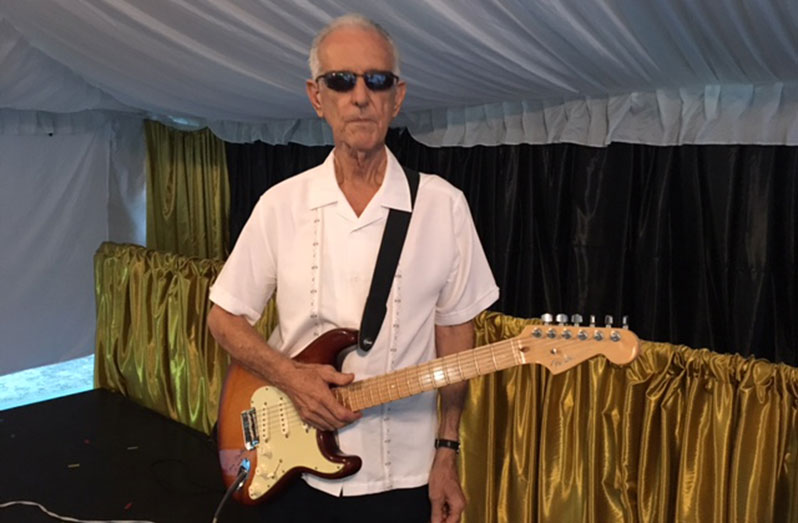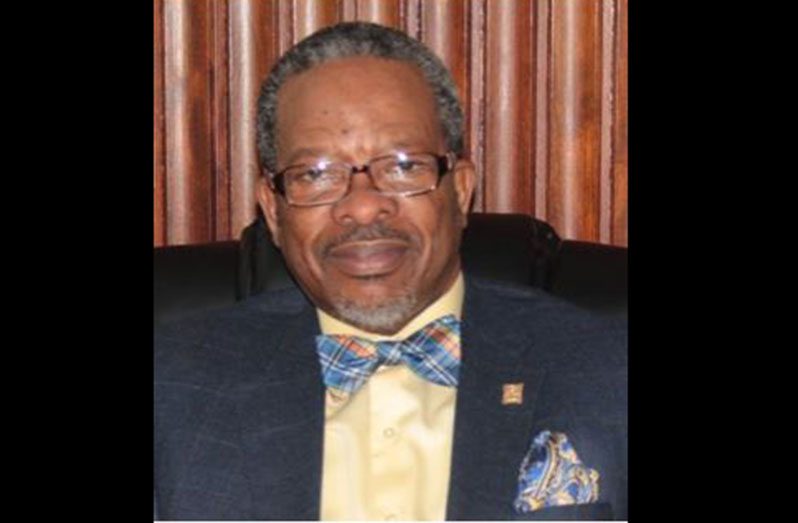By Francis Quamina Farrier
IT has been over half a century since Guyana’s Spanish-speaking neighbour to the west, Venezuela, has laid claim to more than half of Guyana’s 83,000 square miles of sovereign territory. To Guyana and the rest of the world, it is a ridiculous claim and for that period of time, Guyana has refuted that claim, pointing out that the issue was settled (once and for all) in 1899.
However, for over a century and a half, Venezuela has held that non-issue like the proverbial sword of Damocles over a peaceful country, Guyana. As Guyana’s celebrated singer/songwriter Dave Martins states in his song, “Not a Blade of Grass,” “We ain’t giving up no mountain, we ain’t giving up no tree, we ain’t giving up no river, that belong to we.” The Guyanese people with all their many disagreements and with many other national issues that they mutually agree to fight and squabble over, remain united and resolute with this issue which Venezuela continues to keep alive.

More recently, former Vice-Chancellor of the University of Guyana, Professor Dr. Ivelaw Lloyd Griffith, wrote a long paper of that on-going issue, which is creating a measure of distraction from Guyana’s many national projects and objectives. “Venezuela’s attempt to claim for itself the seas and seabed adjacent to the coast west of the Essequibo River, is another legal nullity, which will receive no legal regard from any other state in the world, including Guyana,” Dr. Griffith points out. While most countries are supportive of Guyana, this land claim by Venezuela continues to be promoted by that country in many ways. For example, there is a large map of Venezuela and Guyana at the baggage-claim area of the Caracas International Airport showing the area of Guyana west of the Essequibo River, shaded; the area claimed by Venezuela. As such, that is seen by all arriving passengers who have luggage to claim at the baggage-claim area, myself included, when I passed through that airport on a few occasions. That map on the wall sends more than just a subliminal message. It is more or less the symbol of a cold war of sorts between the two neighbouring South American nations. Looking at that map could be irritating for patriotic Guyanese, but there is little they can do about the situation while waiting to collect their luggage, but to grin and bear.
As recent as January 7, 2021, Venezuelan President Nicolas Maduro launched a series of sabre-rattling measures against its peaceful neighbour, Guyana. He issued a Decree – No. 4.415 – which claims exclusive rights in the waters and seabed extending 200 nautical miles off the Orinoco Delta. The decree created a strategic zone, the territory for the Development of the Atlantic Facade that abuts Guyana’s maritime space, northwest of the Essequibo River, where several oil fields have been discovered – including the Atlantic facade of the Orinoco Delta up to 200 nautical miles.
That was the mindset of President Maduro when establishing the zone. That move, however, has developed into part of the battery of legal, diplomatic, political and state actions, “…to defend our sacred rights of 200 years of our republic.” Maduro stated. The decree provides for a single board of directors – comprising representatives from the seven vice-presidents, the armed forces, and the Ministry of Foreign Affairs – to manage all aspects of the strategic area, including revenue, taxes, and imports facilities. Understandably, “Guyana has rejected this attempt to encroach upon its territory and petroleum resources.” Guyana’s President Irfaan Ali stated in a special address to the nation on January 9, 2021.
There is an irony to this ongoing relationship between Guyana and Venezuela. For at least two decades, Guyana has hosted many Venezuelans-many of them arriving in the country illegally and as exiles-especially in the northwest area of the country, Region One. Many Venezuelans can also be seen in and around Georgetown. In more recent years – especially since Venezuela has been experiencing deep economic issues – more Venezuelans have gone into self-exile in neighbouring Guyana, Colombia and others. Their once “Oil-Rich country” is now experiencing serious economic issues. There are stories coming out of the country of citizens who are starving, and living well below the poverty line.
Almost an entire century and a quarter have gone by since the official settlement of the Guyana/Venezuela border issue. However, like the proverbial sword of Damocles, it continues to hang over our Beautiful Land of Guyana. Just when will that ‘sword’ be removed by Venezuela, only time will tell, as diplomats work quietly behind the scenes to bring it to a peaceful and amicable end.



.jpg)










